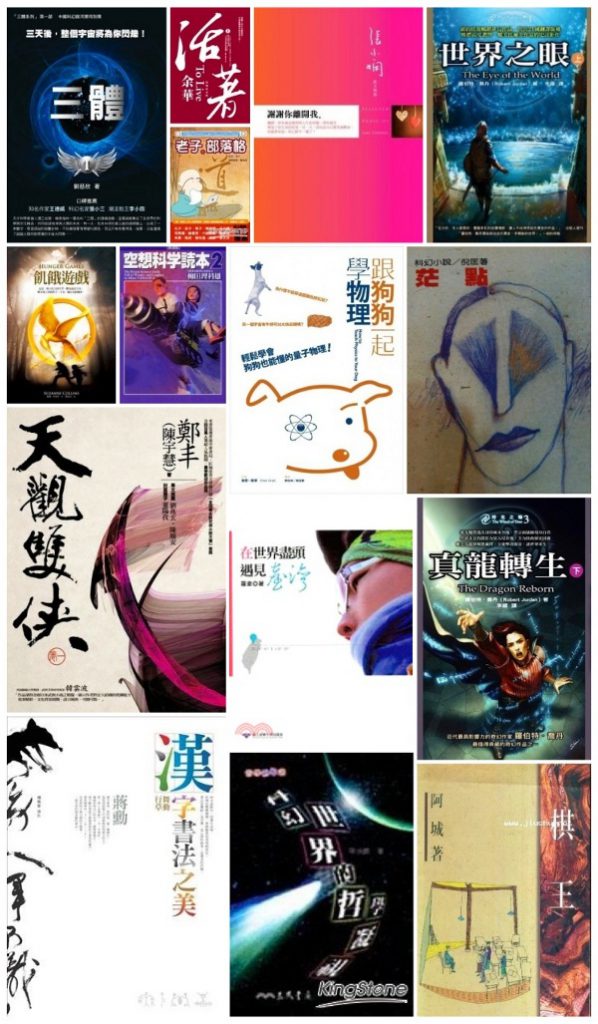
Reaching an advanced level of Chinese is a significant achievement, akin to completing a university degree in terms of time and effort invested. However, the journey doesn’t end once you can understand spoken Chinese in various contexts and communicate effectively. Can you use Chinese in a professional setting? Can you explain a complex topic clearly enough for others to learn from you? Can you acquire new skills yourself entirely in Chinese without the language becoming a barrier?
If you thought the intermediate plateau was daunting, I can tell you that the advanced slopes beyond go on forever. To continue learning and improving, and approaching a near-native level, you need to find not just new ways of learning, but also new sources of motivation to keep going.
Tune in to the Hacking Chinese Podcast to listen to the related episode (#219):
Available on Apple Podcasts, Spotify, YouTube and many other platforms!
Giving myself advice as an advanced student of Chinese
Depending on the definition of advanced, I would say that I reached this level after studying for 4-5 years. While I would hesitate to call myself advanced when I left Taiwan after my third year, it would be too modest not to use the word after I enrolled in a master’s program for teaching Chinese as a second language (mostly for native speakers and taught in Chinese) two years later.
That means I reached this level more than a decade ago, and the more I learn, the more I realise how little I know. If you read this as a beginner or intermediate learner, you might think it sounds like a cliché, but it’s true. Knowledge is like a bubble: the bigger it becomes, the larger the surface area facing the unknown becomes.
In this series, I’m imagining what insights I would share with a younger, less proficient me if I had a time machine. I will make sure to present my advice in a manner that makes sense even if you’re not familiar with the story of how I learnt Chinese, but if you want to know more about that, check out the following articles:
- Where it all started
- Learning Mandarin in Sweden
- My first year in Taiwan
- My second year in Taiwan
- Returning to Sweden
- Graduate program in Taiwan
- Teaching, writing, learning
Beginner, intermediate and advanced Chinese: An overview
In very rough terms, I count myself as a beginner during my first year of learning Chinese (parts 1 and 2 in the story of how I learnt Chinese), as an intermediate student from my second year in Taiwan up to applying for a master’s degree programme (parts 3 and 4), and finally as an advanced student from then up until now (parts 5, 6 and 7). This roughly corresponds to the A, B and C levels described by CEFR.
Here’s a list of all three articles in this series:
- The time machine, part 1: Beginner
- The time machine, part 2: Intermediate
- The time machine, part 3: Advanced
Advice to myself as an advanced student of Chinese: Keep the momentum
The reason most students don’t reach an advanced level is that they stop learning. That might sound obvious, but consider the alternative that students fail to learn even though they try, which I don’t think is common. If you can find ways to keep learning, you will improve over time. Learning Chinese as an advanced learner is hard, not because each step is difficult, but because you need to take so many steps. The problem is that what brought you to the advanced threshold might not be enough to propel you far beyond that, so many quit.
This is true both in terms of why you learn and how you learn:
- First, why do you want to keep learning? It’s likely that you have already achieved most or all the goals you had when you started learning Chinese. If so, you need to find a compelling reason to keep learning. You can already talk with friends or family, you can read most texts you’re interested in, even if you might need a dictionary for more specialised content, and you can communicate effectively in most contexts.
- Second, how are you learning Chinese? At lower levels, simply using the language will provide you with more learning opportunities than you can deal with, but the more advanced your Chinese becomes, the more you need to seek out opportunities to learn. If you keep doing the same things you’ve always done, you will stagnate. The problem is that leaving your comfort zone is of course uncomfortable, but that’s what you need to do. More about this later!
Maybe you should learn another language or get a PhD instead
Before we get to my advice to other advanced learners, let’s address a question that might seem almost heretical: Is it worth it to keep improving your Chinese? When do you stop?
This is a serious question because, at an advanced level, the law of diminishing returns truly starts kicking in for real. If I had taken 80% of the time I spent on Chinese after reaching an advanced level and invested it elsewhere, I might have been able to learn German, Spanish and Italian to a decent level. Or I could have completed a PhD in one of the many areas I have considered over the years. Or I could have built something more than a one-person, spare-time business out of Hacking Chinese. Or any other major endeavour you care to mention.
I’m still here, though, and so are you, so these sober, rational calculations of what makes sense to do aren’t always what determines what we do in life. It’s also a bit unfair to compare learning Chinese with earning a PhD or building a business, because the former can be mixed in with everything else you do, and the latter cannot. If you make sure most of your media consumption is in Chinese and you also have a situation where you use the language, you will learn, but you can’t draft a research proposal while jogging or learn accounting to relax (or at least I can’t).
I love learning and teaching Chinese, so that’s what I’m doing, but if you don’t have the motivation to keep pushing even though you’ve reached your goals, that’s okay! Be happy that you’ve reached your goals and find ways to maintain your level while focusing on other things.
Heresy, I know, but it needed to be said!
Advanced Chinese advice #1: Find genuinely interesting content and enjoy yourself
In the previous article, I mentioned engaging content too, because it’s great to rely on your interests and hobbies to enable you to listen and read more as an intermediate learner. As an advanced learner, however, this becomes essential because you will never be able to spend thousands of hours listening and reading if the content is not genuinely interesting. Your mind will keep wandering and you will end up engaging with content you enjoy more in other languages.
 People sometimes ask me how I learnt English, considering that I haven’t spent more than a few weeks in English-speaking countries in my life. The answer is vast amounts of extensive reading and listening. I have read or listened to well over a thousand books in English and more than that again in the form of articles, websites, videos, films, podcasts, and the like.
People sometimes ask me how I learnt English, considering that I haven’t spent more than a few weeks in English-speaking countries in my life. The answer is vast amounts of extensive reading and listening. I have read or listened to well over a thousand books in English and more than that again in the form of articles, websites, videos, films, podcasts, and the like.
I haven’t been immersed in anywhere near that amount of Chinese yet, but then again, my Mandarin is not as good as my English either. Interestingly enough, I did an estimation a few years ago of how much I had spoken the two languages in my life, and concluded that I had spoken at least twice as much Chinese as English! This is of course because I’ve spent four years living in Taiwan and a sizeable portion of my social life for the past decade or so has been in Chinese.
Obviously, you don’t need to read a thousand books and listen to 20,000 hours of Chinese audio to reach an advanced level, but it’s a good start if you want to reach near-native proficiency. Don’t take the numbers provided here too seriously, though, but do expect them to be high.
Read and listen because it’s interesting, not to learn Chinese
I’m not saying this to scare you, but I’m bringing it up because you need to find ways of learning that you can engage in as often and as much as possible for years to come. The reason I’ve been able to immerse myself in English at home is because I’ve been truly motivated to do so. Not because it would be good for my English, but because I’ve been genuinely interested in the content.
 For example, I like staying up to date with world affairs, so I have listened to every edition of The Economist since 2008. That’s 4,500 hours of audio just from that sole source.
For example, I like staying up to date with world affairs, so I have listened to every edition of The Economist since 2008. That’s 4,500 hours of audio just from that sole source.
And what about the thousand books I mentioned? Well, I certainly didn’t read or listen to them for language-learning purposes, except for a few dozen I read in school. If you want some recommendations for Chinese books, I wrote about everything I read for a year here: 25 books I’ve read in Chinese, with reviews and difficulty ratings
Finding interesting content in Chinese is not easy
The bottom line is that you need to find interesting content. An effective way to verify if it’s genuinely interesting is to ask yourself if you’d find the content interesting if it were in your native language. If the answer is yes, then you’re good. If the answer is no, you need to keep looking.
Finding genuinely interesting content is often hard. If you’re anything like me, you need to actively search for it, but depending on your preferences, you might have more luck!
A good example of something I’ve spent hundreds of hours on simply because I like it is Learning science in Chinese with 李永乐老师. I’ve watched almost all 600 videos on his YouTube channel and think he’s a great teacher, talking about a variety of topics that aren’t related to my profession at all, but that I enjoy learning about. Another example is StarCraft, a computer game for which I used to watch hundreds of hours of professional gameplay with Chinese commentary. You need to find your 李永乐老师 or your StarCraft, preferably a whole crowd of them.
Advanced Chinese advice #2: Vary your input and pop the filter bubble
Your most important goal is to make sure you keep listening and reading as much as possible (as covered above), so my second piece of advice might seem contradictory: Vary your input and pop the filter bubble.
The term “filter bubble” was coined by Eli Pariser, not to describe stagnation in language learning, but rather a state of intellectual isolation, caused by a limited variety of input, exacerbated by social media and content algorithms that try to please us.
The filter bubble applies to learning Chinese as well. While it’s great that I’ve watched hundreds of videos with 李永乐老师, that alone is not enough. He’s just one person, speaking in a certain way about a limited range of topics in a similar style. If you only have a handful of such sources, your input will be too limited. This is not to say that you shouldn’t spend a thousand hours reading your favourite wuxia author or listening to everything produced by the stand-up comedian you love, but it means that this shouldn’t be the only thing you do.
There’s no conflict between this advice and the first. Think of it like a rocket launch: the first stage does the heavy lifting, and the second stage builds on that. The first stage alone will get you off the ground, but the second stage won’t work on its own.
Diversify your listening and reading
Here, I believe TV, radio, newspapers and other curated forms of content can play a key role because while it’s great to choose your content all the time, having fixed programming means you will be exposed to Chinese you normally wouldn’t. If you listen to a wide variety of radio programs and watch a range of TV shows, you’ll be exposed to a diverse range of Chinese in terms of:
- Topic and subject matter
- Vocabulary and idiomatic expressions
- Formality and tone (including slang)
- Sentence structure and syntax
- Pronunciation and accent
- Cultural references
- Context, purpose and target audience
- Register and domain-specific language
The same is true if you decide to read all the articles in a magazine or newspaper, or any other form of media where someone else has curated content for you to consume.
Advanced Chinese advice #3: Challenge yourself and leave your comfort zone
My third piece of advice is like a third stage of our rocket. In more general terms, the advice about varying your input can be thought of as challenging yourself and leaving your comfort zone and is applicable not only to input but also to output.
We already discussed why it’s good to listen to and read different kinds of Chinese, so let’s focus on speaking and writing here. As before, using only the third stage of the rocket is useless, so for this to make sense, you need the other stages as well.
Let’s start with something specific, such as pronunciation. The reason most students don’t achieve clear and easy-to-understand pronunciation in Mandarin is not because the sounds and tones are impossible to learn or because students are stupid, it’s often that they reach a level they are comfortable with and don’t invest the time and energy required to go beyond this.
To be clear, I’m not saying that this is inherently wrong, just as it’s not wrong to say that your Chinese is good enough and to learn some Spanish instead. But if you want to keep learning, you need to leave your comfort zone and put yourself into situations where your current proficiency isn’t enough.
For pronunciation specifically, this often happens when you reach a more advanced level and what you say is hard to predict for other people. I’ve said this before, but it’s surprising how often people I know well misunderstand something I say in Chinese because of a single missed tone, even if everything else was perfect.
This is not because my tones are bad, it’s because beginners simply don’t say complex things where simple mistakes will throw the listener off.
Before we move on to speaking in general and then writing, I’d like to shamelessly promote my pronunciation course, which is not just for those who want a good grasp of Mandarin pronunciation, but also for advanced students who aren’t sure how good their pronunciation is and what issues they should work on and how. You can check it out here: Hacking Chinese Pronunciation: Speaking with Confidence.
Challenge yourself and improve your speaking ability in Chinese
The same is true for speaking in general. When you talk about everyday events and topics, using the correct vocabulary and syntax isn’t always necessary, because your conversation partner will be able to figure these out, and if not, it will be sorted out naturally in the natural flow of the conversation. This is especially true if the conversation environment is friendly, such as with a partner or a friend.
If you want to keep improving your Chinese beyond this, however, you need to challenge yourself in some way. For example, if you use Chinese in contexts you’re not used to, you’ll learn to adapt to these new situations and continue learning.
This is common when using Chinese for professional purposes, when the language you engage with, and use is dictated more by what the job requires than what you like and prefer.
Personally, my Chinese improved rapidly while enrolled in the master’s program mentioned earlier, because I had to handle an entire range of new situations. Similarly, when I teach professional development courses for Chinese teachers in Chinese, I also challenge myself to use more precise language to be able to teach more effectively.
Having a one-on-one teacher can also be helpful, as long as they help you raise the bar.
Speaking Chinese with friends, strangers and adversaries
This leads us to another form of challenge, namely speaking with people you don’t know. When you speak with your two close Chinese friends or your spouse, they will be very tolerant of the way you speak and will be able to understand what you mean even if you make a lot of mistakes. The same is true for most teachers.
Strangers are less forgiving, not because they want to be, but simply because they aren’t used to your way of speaking (your accent, the mistakes you make, and so on). Learning to speak so that everyone finds you easy to understand is much harder than just talking to a handful of people in your closest social sphere.
Another related type of challenge, which I haven’t personally experienced much, is to use your Chinese in neutral or even hostile situations, which further increases the demands on your Chinese. A well-meaning person is more likely to accept errors and idiosyncrasies in your language than someone who doesn’t already like you.
I don’t mean to say that you should deliberately start fights with people to practice your Mandarin, but there are many situations where you might use the language in contexts where people might not like you by default.
Most professional contexts are like this, in fact, which is why using Chinese in your job is also beneficial. If you’re dealing with upset customers, trying to figure out what went wrong with a project or negotiating a new salary, the stakes are higher, and you can’t assume that the people you talk with have your best interests in mind.
The point is that if you only use Chinese in contexts where you feel comfortable, you will learn some things, but not as much as if you also expose yourself to new situations and leave your comfort zone!
Writing: The tip of the iceberg of reading
The above is true for writing as well, so if you want to improve beyond the point where you can make yourself understood, you need to put yourself in situations where being understood isn’t enough.
This could be a work context where you want to make a good impression or where precision is important, it could be when you write a thesis or dissertation in Chinese, or it could just be writing anything under the supervision of a demanding teacher.
I’ve written a lot about improving writing ability here, but one extra piece of advice for fellow advanced learners is to make sure that the person giving you feedback is a good writer. It’s easy to think that native speakers are automatically better writers than you are in Chinese, but this conflates two different things.
Yes, it’s true that their sense of vocabulary usage and grammar is much stronger than yours, but this does not mean that they are good at structuring a text, presenting arguments and describing or explaining complex topics.
It can help to think of a foreigner learning your native language at an advanced level. Think about your family and friends. Are they all equally suitable for giving feedback on writing? Probably not; some might even be unsuitable! This is of course true in Chinese as well, but being that foreigner, it can be hard to figure out.
My only suggestion is to try to get feedback from more than one source, preferably on the same piece of text. After working with different teachers or friendly native speakers, you’ll get a feel for whom to trust. Native speakers don’t know everything about Chinese just because they are native speakers.
Conclusion: The three roads to mastering Chinese
Let’s conclude this article by looking at three roads that lead to mastery. You don’t have to pick one, but I think achieving mastery in any other way is very unlikely and exceptionally rare. None of these are guaranteed to get you there either, because just like literal roads, you also need to walk them to get to your destination. They cover most of what we have talked about in this article:
- Having your social life in Chinese – Depending on how big your social sphere is, this can either take care of all or most of the advice covered above. Naturally, if your social life in Chinese consists of one person, you won’t get much diversity and it won’t make you leave your comfort zone too often either, but it’s still a great motivation to keep learning.
- Cultivating a genuine interest – This is what advice #1 is all about: finding the content that you find genuinely interesting and want to get more of, not to learn Chinese, but just because you like it. This enables you to listen and read enough.
- Using Chinese in your job – This is related to advice #2 and #3 in this article. Using Chinese in your job means you will use it in different contexts and with higher stakes, meaning a higher bar for your Chinese proficiency.
I wrote an article about the three roads to mastering Chinese here:
What advice would you give to fellow advanced learners? You don’t need a time machine for this one, you can just post a comment below!



2 comments
I wish someone would write this same article but for normal students of Chinese. People who don’t have as a goal approaching anear-native level, but who just want to live in China and communicate with Chinese people.
The problem is selection bias, the people who acquire the highest possible levels are going to write the articles.
At least this one doesn’t assume the learner wants to finish by mastering classical Chinese so he can read Tang dynasty poetry and Confucius in the original, something only an infinitesimal number of people who begin studying Chinee set as a goal.
Good point! And you’re of course spot on when it comes to the selection bias. I think the target audience for this specific article is people who think that being able to deal with everyday life in Chinese is not enough. You can already do these things on the intermediate level (if we define that as B1-B2). What did you think about the intermediate article in this series if you read/listened to it?